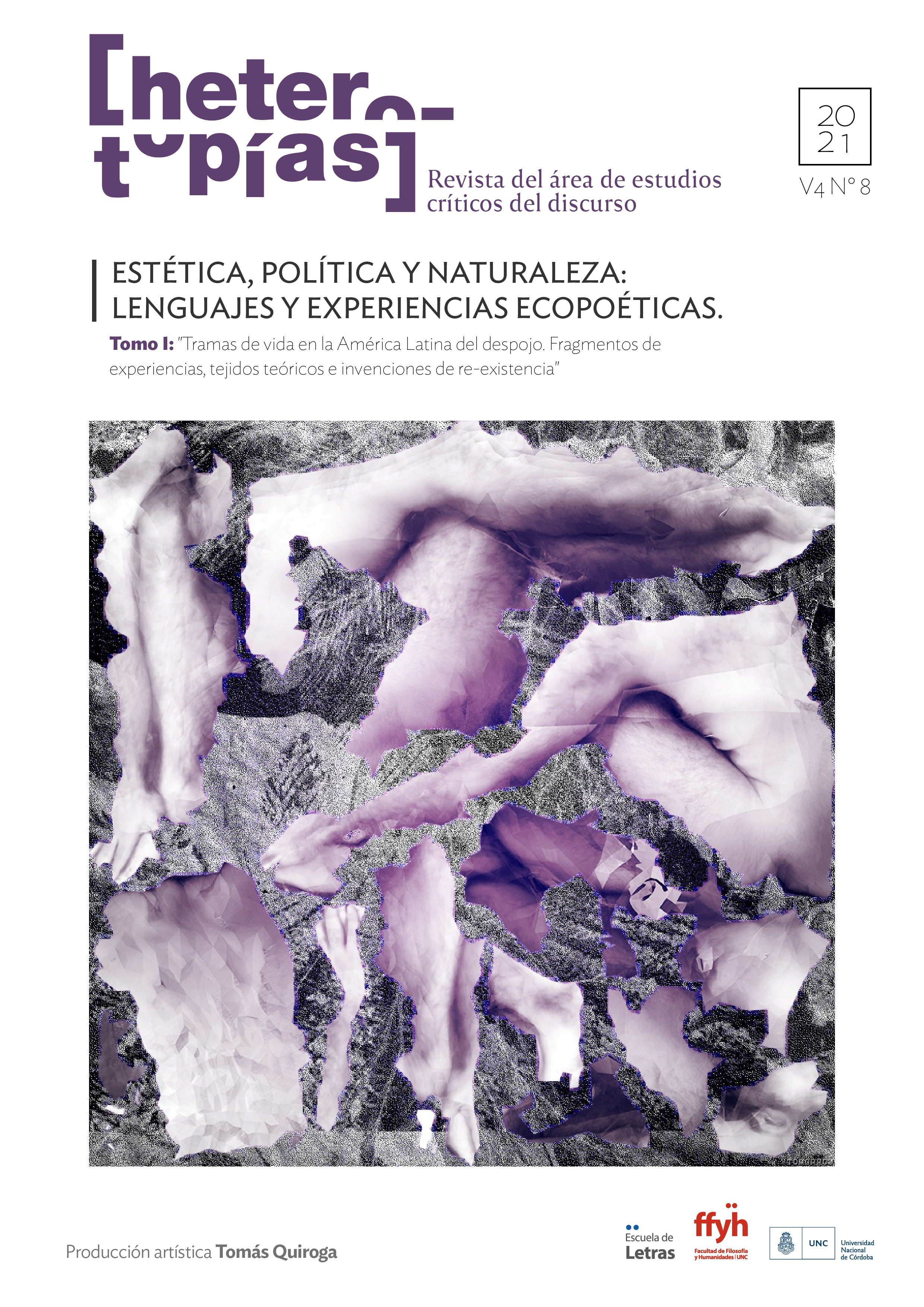The threads of power and the weft of resistances: expropriation and social struggles
Main Article Content
Abstract
The impact of the extensive process of reconfiguration of capitalism that operated under the neoliberal command, whose definitive institutionalization in our country occurs in the 90's, can only be fully understood if we inscribe it and analyze it from the devices of power and subjectivation that have made it possible. In our opinion, this process needs to be placed within the framework of neoliberal capitalism as a device of power and subjectivation that modulates both institutionalized practices and those practices that resist it. If we consider that such a government structure has shown a global vocation to flood all spaces and social relations, it is not wrong to assume its disposition to go through even the practices of resistance and opposition.
The concern behind this article is that the principles of neoliberal logic have advanced, more subtly or more fiercely, to permeate resistance practices and the way in which the expression of opposition, discontent, protests or rebellions become governable. Even though in each conflict the chaotic and destructive aspect of the prevailing social-political-environmental-economic model undresses; capable alliances offering an alternative to transform this reality have not been consolidated. Vulnerability -current and/or potential- is the anchoring condition for the production/reproduction of capital, but also to resist these relations of domination and subordination.
However, for now, it is not possible to speak of a weft and a language that is capable of supporting and stabilizing the wide repertoire of conflicts on a path of emancipation.
Keywords: capitalism; subjectivation; precarious; expropriation; social struggles
Downloads
Article Details

This work is licensed under a Creative Commons Attribution-NonCommercial-ShareAlike 4.0 International License.
Those authors who have publications with this journal, accept the following terms: Those authors who have publications with this journal, accept the following terms:
a. The authors will keep their copyright and guarantee to the journal the right of first publication of their work, which will be simultaneously subject to the Creative Commons Attribution - Non-Commercial - Share Alike (by-nc-sa) Attribution License; no commercial use of the original work or any derivative works is allowed, the distribution of which must be done with a license equal to the one that regulates the original work.
b. Authors may adopt other non-exclusive license agreements for the distribution of the published version of the work (e.g., deposit it in an institutional telematic archive or publish it in a monographic volume) provided that the initial publication in this journal is indicated.
c. Authors are allowed and recommended to disseminate their work through the Internet (e.g. in institutional telematic archives or on their website) before and during the submission process, which may lead to interesting exchanges and increase the number of citations of the published work. (See The effect of open access).
How to Cite
References
Antunes, R.; Bialakowsky, A.; Pucci, F. y Quiñones, M. (2019). Trabajo y Capitalismo. Relaciones y Colisiones Sociales. Buenos Aires: Teseo.
Ciuffolini, M. A. (2015). El hilo rojo: subjetivación o clase. Critica y Resistencias, 1, 51–64.
Ciuffolini, M. A. (2017a). La dinámica del neoliberalismo y sus desplazamientos. Para una crítica inmanente en orden a su superación. Studia Politicae, 40, 55–70.
Ciuffolini, M. A. (2017b). Quien no se mueve no siente sus cadenas. Córdoba, EDUCC.
Ciuffolini, M. A. (2021). Territorios y la trama de las resistencias. En Congreso Nacional: Políticas e instrumentos para la gestión local del suelo realizado los días 25 y 26 de agosto y 1 y 2 de septiembre de 2021. Universidad Nacional de General Sarmiento.
Ciuffolini, M. A.; de La Vega, C.; et. al. (2017) Diálogos desde el llano: capitalismo y resistencias. Córdoba: El llano en llamas.
Ciuffolini, M. A., Avalle, G., de la Vega, C., Villegas Guzmán, S., Saccucci, E., Ferrero, M. M., ...de Goycoechea, V. (2020) La foto revelada. Informe sobre la situación social, conflictividad y medidas gubernamentales en la Córdoba de la pandemia. Córdoba: Fundación El llano (CEPSAL).
Colectivo De Investigación “El llano en llamas” (2013) Tomas de tierra en la Provincia de Córdoba. Informe Público. Mayo de 2013. Córdoba. Disponible en Internet en: https://drive.google.com/file/d/0B3q1pGtgs3UDLUhhNHVINlY2VWs/view
Colectivo De Investigación "El llano en llamas" (2014) Criminalización de la pobreza y judicialización de las luchas políticas/sociales en la Provincia de Córdoba. Informe público, Junio de 2014. Disponible en Internet en: https://drive.google.com/file/d/0B3q1pGtgs3UDTGFYQTNQS0QxSDg/view
Deleuze, G. y Guattari, F. (2002). Mil Mesetas. Capitalismo y esquizofrenia. Valencia: Pre-Textos.
Fraser, N. (2017). ¿Una Nueva Forma de Capitalismo? New Left Review, 106, 61–70. Recuperado de: https://newleftreview.es/issues/106/articles/nancy-fraser-una-nueva-forma-de-capitalismo.pdf
Fraser, N. (2020). Los talleres ocultos del capital. Un mapa para la izquierda. Madrid: Traficante de Sueños.
Gago, V. y Mezzadra, S. (2015). Para una crítica de las operaciones extractivas del capital. Patrón de acumulación y luchas sociales en el tiempo de la financiarización. Nueva Sociedad, 255, 38–52. Recuperado de: http://economiainternacional.sociales.uba.ar/wp-content/uploads/sites/84/2018/08/Gago-y-Mezzadra-2015.pdf
Hardt, M. y Negri, A. (2020). Imperio, veinte años después. New Left Review, 120, 71–98.
Lorey, I. (2016). Estado de inseguridad. Gobernar la precariedad. Madrid: Traficantes de sueños- mapas.
Moore, J. W. (2020). El capitalismo en la trama de la vida. Ecología y acumulación de capital. Madrid: Traficante de sueños
Polanyi, K. (1989). La Gran Transformación Critica del liberalismo económico. Madrid: Ed. de la Piqueta.
Querrien, A. (2004). Esquizoanálisis, capitalismo y libertad. La larga marcha de los desafiliados. En Guattari, F. Plan sobre el planeta Capitalismo mundial integrado y revoluciones moleculares (pp.19-41). Madrid: Traficantes de Sueños.
